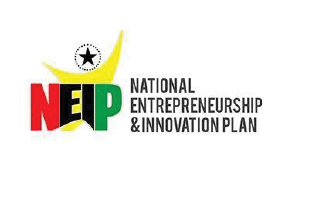Hello again!
I have had many responses from last week’s blog post on 4 MONEY MISTAKES STARTUPS SHOULD AVOID. While it’s comforting to know that I am not alone, it is also disheartening that many of us are making these same mistakes. Just to recap, these are the 4 I mentioned last week: 1. Having disorganised financial records 2. Not considering all costs before pricing 3. Not making a budget for the month 4. Giving without any plan.
Frankly, I believe I have made enough mistakes to cover all startups so please don’t repeat them. Repeat after me ‘DON’T REPEAT THEM’. OK, here at 6 key bookkeeping tips for you.
Pay yourself an income
Deduct your personal income into your expenses and separate it from your business income. In reality, you may not be able to pay yourself in the beginning stages of your business. However, woman must survive and will definitely be tempted to dig into company revenue. I did that many times. Errrm I’m still guilty of that. What works is to remove and dedicate a certain amount of money for your personal use. Need I say record this expense?
Open a separate account for business
If your business is registered already, you can use the registration certificate to open your business account. Do a simple research and find out the best bank to bank with. If you have not registered your business yet, you can still open an account in your name and discipline yourself to dedicate it for business.
For instance, Ama Duncan account in Bank A can be for personal use while Ama Duncan account in Bank B will be for business purposes only. Remember, this is only for the initial stages of your business when you have not registered yet. As soon as you make your business official, open a business account. Actually, as your business expands, it might be necessary to open different accounts for different purposes. For now, two will be just OK.
One more thing, please avoid yet another mistake I have made several times: digging into the business account for personal use. It’s your own money right? Wrong, it is money for your business! Also avoid making the vice versa mistake of using personal money for business purposes without recording it. This brings me to my next point.
Record expenses and incomes immediately
It is 100% likely that you will use your personal money e.g. salary from your full time job to fund your business. This is perfectly fine especially as it shows you are committed and have your skin in the game. Just make sure you record every single expense with details such as date, item purchased, amount, etc.
It is equally important to record all incomes coming in on a daily basis even if it is just 1ghs. Yes! Like I mentioned last week, I used to record in diaries and then I tried using Ms Excel. These did not work, perhaps because I was not committed or organised.
What has worked over the past couple of years has been using an app called Day to Day Expenses. My friend Vera Obeng recommended it at a time when I was considering OZE. I liked the simplicity of her recommendation so I just decided to continue. Some of my coaching clients have been using OZE as well and are happy with it. Simply go to App or Play store, download and try out any of the bookkeeping apps. An app on your phone makes recording immediate.
Personally, at the end of every month, I reconcile my bank statements with income/expenses. It is easy using the information from the app. I have subcontracted an accountant who prepares my financial statements at the end of the year. It was tough a couple of years ago as my records were very disorganised and I couldn’t answer their questions. Things are definitely better now. I find that with time, we all improve if we are committed to improving.
Create and stick to a monthly budget
Funny story; I am writing this blog post on Tuesday 2nd March, 2021. It was when I got to this particular point that I realised that I hadn’t completed my own budget for this month! What did I do? I stopped, went and completed it. My point is sometimes we get so busy we forget to plan or to not finish planning. I want to encourage you to make time to plan because it will save you a lot of headache once you start implementing.
Let me share a few of the items on my current monthly budget: 1. Salaries 2. Social Security & National Insurance Trust 3. Utilities (Electricity, Data, Water) 4. Generator (if you are in Ghana, then you know why this matters haha) 5. Fuel, etc
Most of the things above are all recurring items on my budget and the figures are usually the same. You might want to create a simple template with all these items listed and then update it when necessary. Once you estimate how much you actually need to keep your business open, you can then add a markup for profit. For instance, if you need 1000 Ghana Cedis, shoot for 2000 or 10000! You will then have enough motivation to keep selling until you at least meet your target revenue.
Give to charity from profit, not revenue
Speaking of revenue, remember it is not the same as profit. Accountants have a way of calculating actual profits. For our sake, it is simply revenue minus cost. If you want to give to charity as a business, please ensure you give from your profit. Example, say your revenue and costs for January were 40000 and 20000, respectively. You can give an amount from your profit of 20000. You may decide to 10% of your profit, in this case it will be 2000ghs.
If you are determined to give a percentage of your profit to charity, keeping proper records will help you know exactly how much you can give. One lady wrote to me recently that she gave out money to charity from a deposit a client had made. I cannot judge her because I have made that mistake many times too. Don’t give from your revenue, give from your profit. As a business owner, you are a steward for the business. Please be a good steward and manage it well. God is watching.
Factor in all costs before pricing
Please don’t be like the old Ama Duncan who would just price off the top of her bald head! Before you give out any price, sit and calculate how much it actually costs. It may take time to finally get it right but start doing it anyway. For instance, calculate the cost of raw materials, utility bills, salaries, etc. When you know the total cost, then you can add your markup for profit.
This process is quite more complex than explained here. Hopefully, I’ll blog about it soon. Until then, do your own research and then apply what you can. I will be happy to hear from you on how you are doing though.
Let me not do long things with this post. Bookkeeping has been a personal wahala for a long time. I am so happy with the progress I have made. Today, it dawned on me that there was more I could do to improve. So yes, don’t worry too much if you don’t get it right the first time. There will always be room for improvement. Just keep on moving forward. Until I come your way again, continue being fabulous!
Ama xx
PS: The Fabulous Woman Speaks Conference – IWD Edition is happening on 8th March, 2021. Register here https://bit.ly/TheFabulousWomanSpeaksIWD2021 and don’t forget to share with others.
Photo By: Vera Obeng Photography













